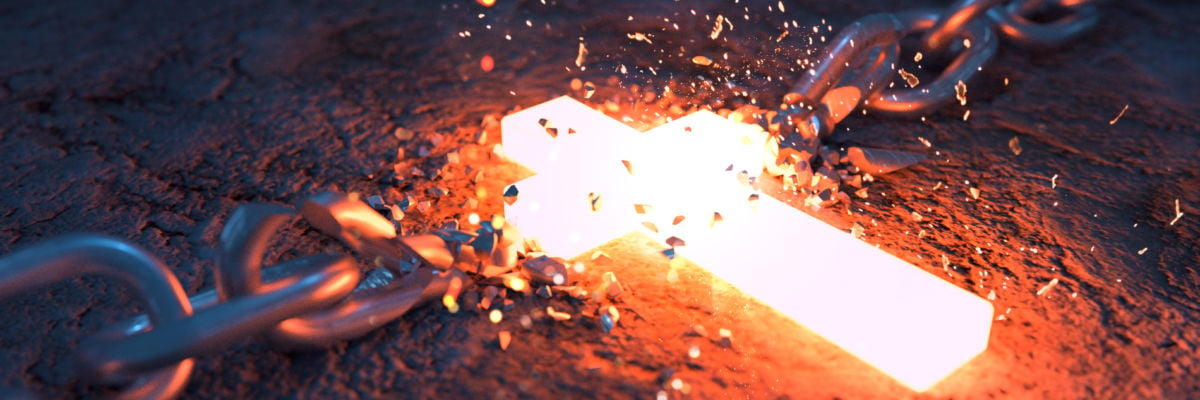
The Ascension is the subject of a glorious mystery of the rosary, not a sorrowful one. Jesus returns to the Father, mission accomplished, fulfilling the prophecy of Isaiah: “so shall my word be that goes forth from my mouth; it shall not return to me empty, but it shall accomplish that which I purpose, and prosper in the thing for which I sent it” (55:11).
Jesus takes his place at the right hand of the Father, and he brings our humanity with him. He thereby raises the dignity of our nature above that of the angels. But with all the trouble in the world, what are we going to do without him in this life?
The disciples had the same worries. After the Resurrection and just before the Ascension, they expected Jesus to rescue them from their slavery, throwing off the yoke of their Roman masters and restoring Jewish rule. So they asked Jesus, “Lord, will you at this time restore the kingdom to Israel?” But Jesus deflects the question: “It is not for you to know times or seasons [fixed by the Father].”
We can’t blame the disciples for their fears. We all fear slavery in its many forms. The institution of slavery is a blot on the American historical record. After the Protestant Reformation, the British enslaved many Irish as indentured servants. Slavery continues today in various forms of human-trafficking. A particularly offensive form of slavery has emerged in our country today: slavery to excessive government regulations. It is a fearful thing to fall into the hands of the IRS. And, among the many lessons taught by the pandemic is this: however much we might fear slavery in the abstract, in the here and now, modern Americans have the capacity to be docile slaves.
But in the twinkling of an eye, we can also become the most brutal slave-masters. The zeal of youth often engenders a tyrannical mindset. A young government inspector, anxious to prove his competence, is usually more unyielding in demanding compliance than a more seasoned inspector. The history of twentieth-century totalitarianism reveals how readily ordinary people eagerly embrace positions of authority when given the opportunity. There are many stories of marginally competent office clerks becoming brutally effective Gestapo officials.
In the spiritual life, we often treat Jesus as our personal valet. We expect him to do our bidding, such as throwing off the yoke of the Romans, fixing the conflicts in our lives, or (a favorite prayer intention) saving us from an increasingly intrusive government. So there is a necessary tension in the teachings of Jesus. Jesus wants us to petition him in prayer: “Ask, and it will be given you; seek, and you will find” (Matt. 7:7).
On the other hand, we should not expect him to dance to our tune, having him respond in obedience to our expectations: “But to what shall I compare this generation? It is like children sitting in the market places and calling to their playmates, ‘We piped to you, and you did not dance; we wailed, and you did not mourn’” (Matt. 11:16-17).
So Jesus uses an image of spiritual complementarity that beautifully defines our relationship with him and our duties: “I am the vine, you are the branches. He who abides in me, and I in him, he it is that bears much fruit, for apart from me you can do nothing” (John 15:5). In faith, we work together with Jesus, not as slaves, but as brothers: “No longer do I call you servants, for the servant does not know what his master is doing; but I have called you friends, for all that I have heard from my Father I have made known to you” (John 15:15).
The disciples were slow to recognize their dignity as branches of the vine of Jesus. So before Jesus ascends into heaven, he redirects their attention to their Christian duties: “But you shall receive power when the Holy Spirit has come upon you; and you shall be my witnesses . . . to the end of the earth.” “And when he had said this . . . he was lifted up, and a cloud took him out of their sight.”
But the disciples still didn’t grasp their dignity and responsibilities: “And while they were gazing into heaven . . . two men stood by them in white robes, and said, “Men of Galilee, why do you stand looking into heaven? This Jesus, who was taken up from you into heaven, will come in the same way as you saw him go into heaven” (see Acts 1). The angel might have added, “In the meantime, don’t just stand there! Get to work!”
GET TEACHER OF STRANGE THINGS NOW!
The ascension of Jesus into heaven redirects our attention from his physical presence to faith in our dignity and freedom in Him, sitting at the right hand of the Father. We are in union with him as his branches, and with the grace of the Holy Spirit, we are his witnesses on earth. Jesus indeed walks among us—not as our messianic slave solving every earthly problem, but through us as members of his mystical body. In our encounter with him in faith and the sacraments, he delicately heals our tormented sinful hearts and sends us forth to baptize all nations.
Jesus teaches us to pray: “Ask, and it will be given you; seek, and you will find.” But considering the Ascension and the exaltation of our dignity in Jesus, we may occasionally paraphrase JFK in this bold prayer: “Ask not what Jesus can do for you—ask what you can do for Jesus.”
Christ is risen! His ascension into heaven has elevated our humanity above the angels! “In the world you have tribulation; but be of good cheer, I have overcome the world” (John 16:33). So take a few risks in expressing your convictions. Be creative. Offend politically correct sensibilities. Expect insults. If prudence demands, work quietly behind the scenes to subvert evil policies and programs. Hold fast to the commandments. Don’t give in to discouragement. Rejoice in Christian freedom!



